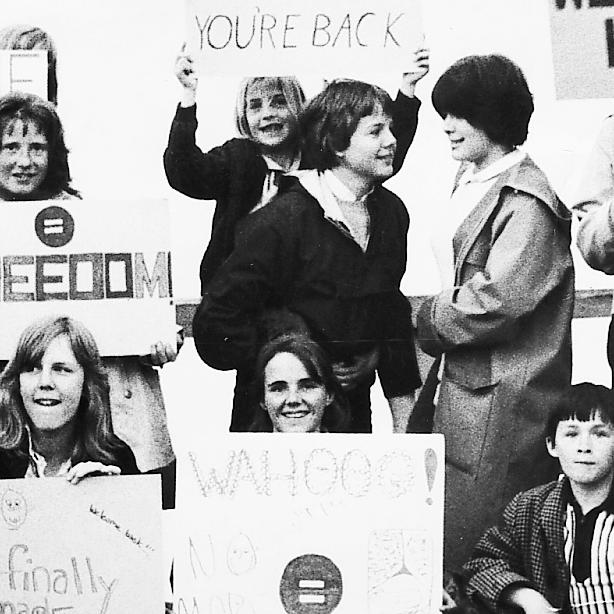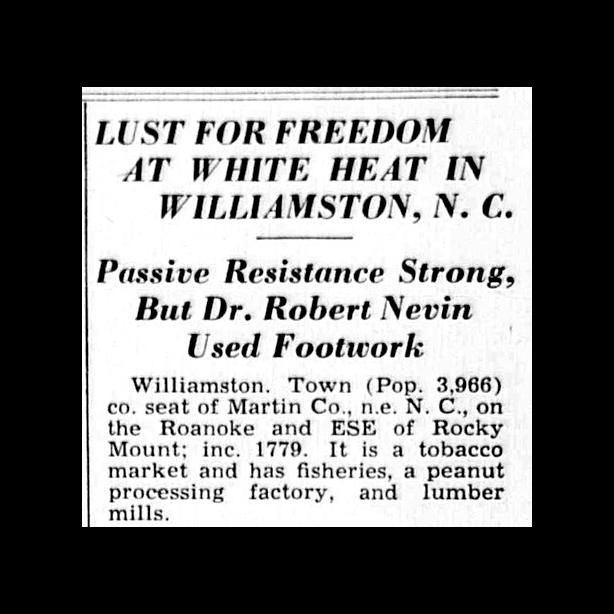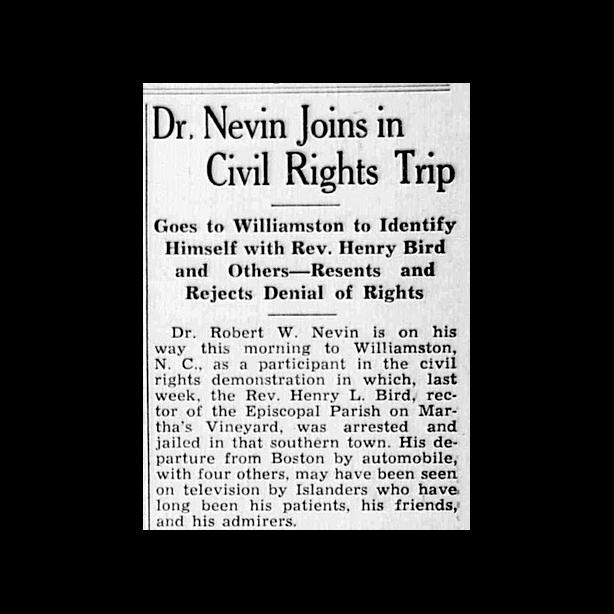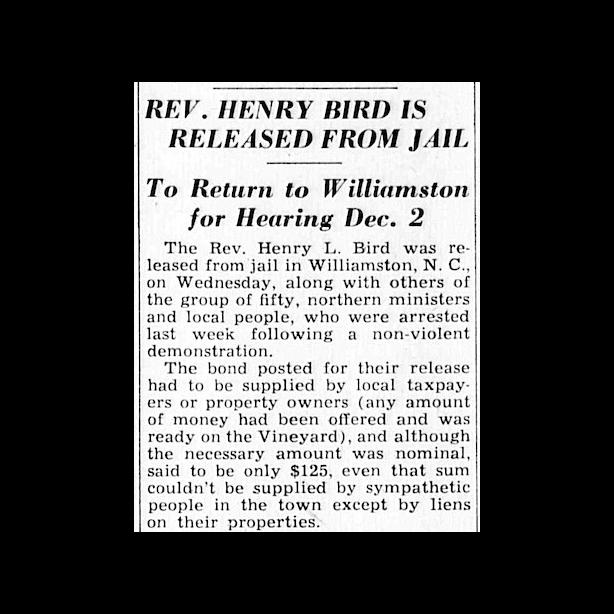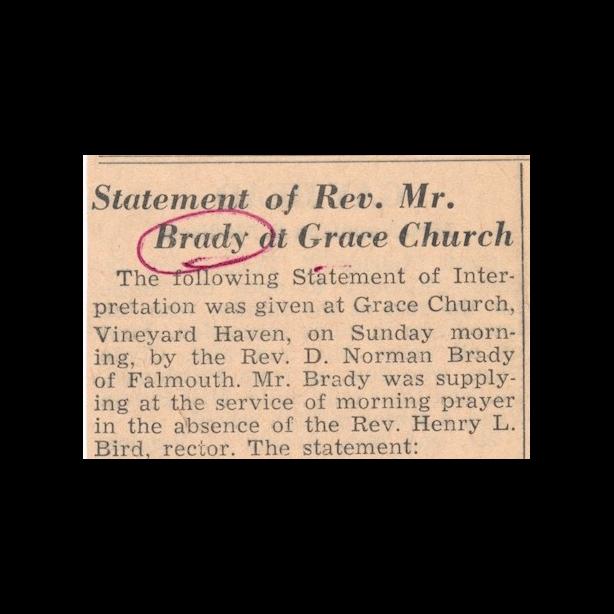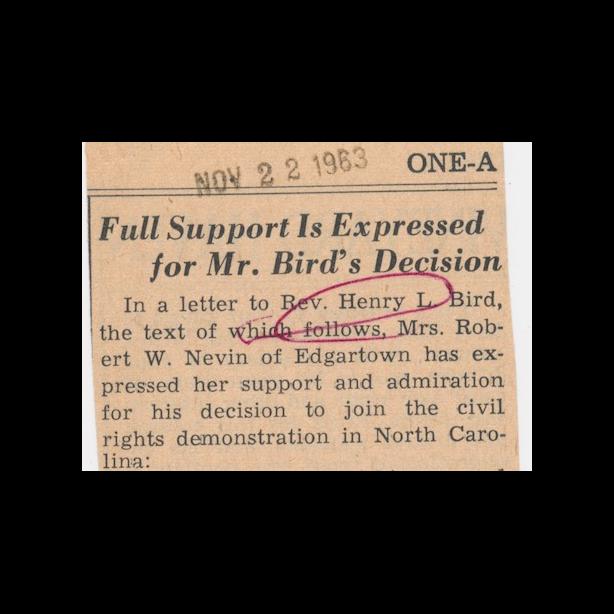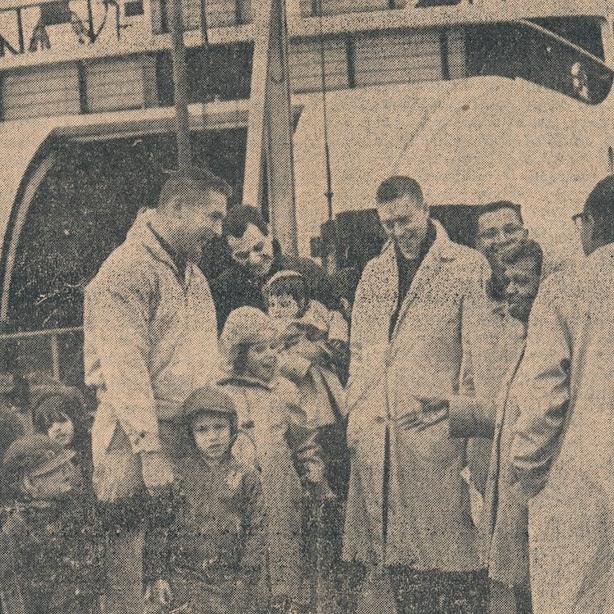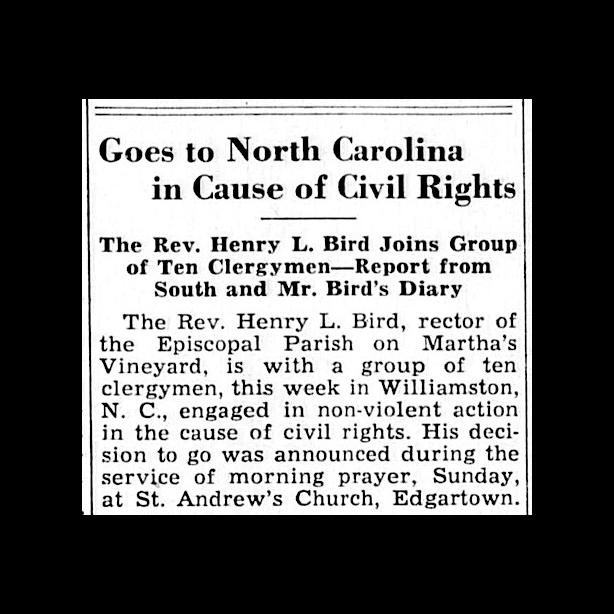Civil rights
Civil rights
February 21, 1992
Island Life and Early History of the NAACP: Two Women Share Threads of Reminiscence
May 1, 1964
Five Women Take ‘Food and Morale’ for Williamston
“Mainly we’re taking food and morale,” Mrs. Stanley Murphy of Chilmark remarked on Tuesday, on the eve of the departure of five Vineyard women - Mrs. David E. Lilienthal Jr., Mrs. Henry C. Smith, Mrs. Nancy Hodgson, Mrs. Milton Mazer, and Mrs. Murphy - for Williamston, N. C., that southern community in which the segregated black population has become allied with the Vineyard in a freedom movement.
December 13, 1963
N.A.A.C.P. Chapter Formed on Island To Study Human Relations on the Vineyard
November 29, 1963
Lust for Freedom at White Heat in Williamston, N. C.
Williamston. Town (Pop. 3,966) co, seat of martin Co., n.e. N. C., on the Roanoke and ESE of Rocky Mount; inc. 1779. It is a tobacco market and has fisheries, a peanut processing factory, and lumber mills.
November 22, 1963
Dr. Nevin Joins in Civil Rights Trip
Dr. Robert W. Nevin is on his way this morning to Williamston, N. C., as a participant in the civil rights demonstration in which, last week, the Rev. Henry L. Bird, rector of the Episcopal Parish on Martha’s Vineyard, was arrested and jailed in that southern town. His departure from Boston by automobile, with four others, may have been seen on television by Islanders who have long been his patients, his friends, and his admirers.
November 22, 1963
Rev. Henry Bird is Released from Jail
The Rev. Henry L. Bird was released from jail in Williamston, N. C., on Wednesday, along with others of the group of fifty, northern ministers and local people, who were arrested last week following a non-violent demonstration.
The bond posted for their release had to be supplied by local taxpayers or property owners (any amount of money had been offered and was ready on the Vineyard), and although the necessary amount was nominal, said to be only $125, even that sum couldn’t be supplied by sympathetic people in the town except by liens on their properties.
November 22, 1963
Statement of Rev. Mr. Brady at Grace Church
The following Statement of Interpretation was given at Grace Church, Vineyard Haven, on Sunday morning, by the Rev. D. Norman Brady of Falmouth. Mr. Brady was supplying at the service of morning prayer in the absence of the Rev. Henry L. Bird, rector. The statement:
November 22, 1963
Full Support Is Expressed for Mr. Bird’s Decision
In a letter to Rev. Henry L. Bird, the text of which follows, Mrs. Robert W. Nevin of Edgartown has expressed her support and admiration for his decision to join the civil rights demonstration in North Carolina:
“As one of your parishioners and a fellow citizen, I want to give full support to your decision to join an anti-segregation demonstration in Williamston, N. C., with its almost inevitable result of your having been jailed there.
November 22, 1963
Letters to the Editors
“Why are you not here?” Thoreau Asked
Editors, Vineyard Gazette:
The action which led to the jailing of the Rev. Henry L. Bird in Williamston, N. C., last week, is reminiscent of an anecdote about Henry Thoreau of Massachusetts. Thoreau was put into Concord jail because he refused action which he believed was immoral. Emerson strolled down to the jail to visit his friend. “Why are you here, Henry?” he said. “Why are you not here, Waldo?” replied Thoreau.
November 15, 1963
Goes to North Carolina in Cause of Civil Rights
The Rev. Henry L. Bird, rector of the Episcopal Parish on Martha’s Vineyard, is with a group of ten clergymen, this week in Williamston, N. C., engaged in non-violent action in the cause of civil rights. His decision to go was announced during the service of morning prayer, Sunday at St. Andrew’s Church, Edgartown.



